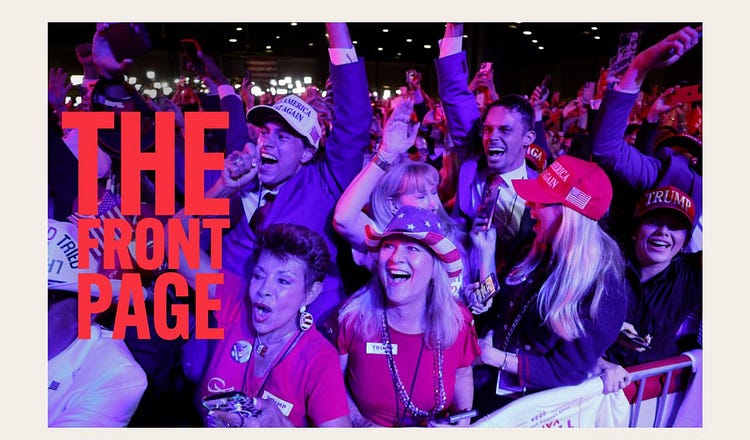No, the Problem Isn’t the Voters

(Chip Somodevilla via Getty Images)
The legacy press explains reality away. Matthew Continetti on the right. Freddie deBoer on the left. Marianne Williamson on Democratic elites. Plus: Olivia Reingold, Frannie Block, and more.
675
Ever since Donald J. Trump arrived on the political scene in 2015, elites have claimed his rise signals the last gasp of a dying white-majority America alarmed by cultural and demographic shifts. This was always a kind of security blanket—an excuse to ignore uncomfortable truths.
If Tuesday’s election results do not demolish that cope once and for all, …
Continue Reading The Free Press
To support our journalism, and unlock all of our investigative stories and provocative commentary about the world as it actually is, subscribe below.
$8.33/month
Billed as $100 yearly
$10/month
Billed as $10 monthly
Already have an account?
Sign In

